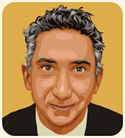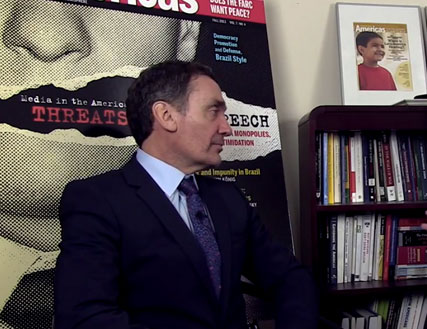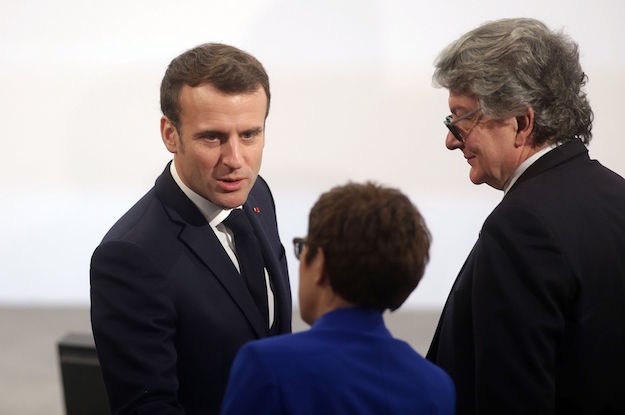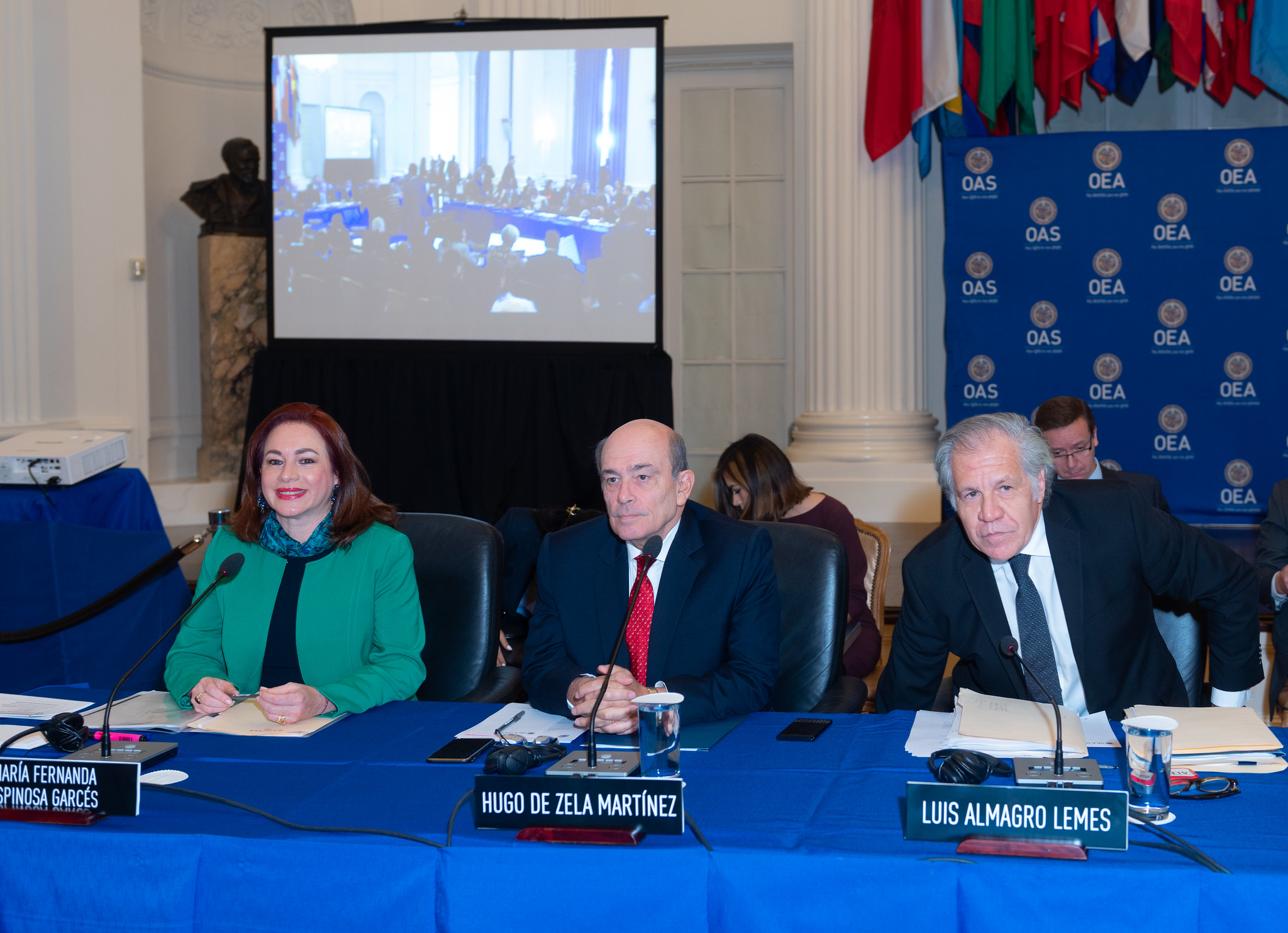Under attack from the Ecuadorian government—among others—and facing the delicate challenge of balancing private-sector media pluralism with avoiding state intervention, the Inter-American Commission on Human Rights’ (IACHR) Special Rapporteur for Freedom of Expression faces a crucial moment in its short existence.
Created in 1998, the IACHR’s Special Rapporteur has written the hemispheric Principles of Freedom of Expression, established international precedent on freedom of expression, and been a powerful voice in denouncing violations to freedom of expression and protecting journalists across the Americas. Despite these successes, the Special Rapporteur had a modest beginning and now faces an uncertain future.
In this interview with Americas Quarterly Editor-in-Chief Christopher Sabatini, Canton recalls how and why the Rapporteurship was created. Now the Director of Robert F. Kennedy Partners for Human Rights, Canton also discusses the Rapporteurship’s relationship with the IACHR and the OAS, its successes, and the challenges that the Rapporteurship faces today.
“There were no standards on what freedom of expression means in an inter-American context,” says Canton. “There was very little jurisprudence, there was a need for more public denunciations of the violations that were taking place regarding freedom of expression, and there was a need to have a presence in the field.”
Canton says the system has increasingly come under the attack by countries denounced by the Rapporteurship, and changes within the OAS threaten its independence. “[The Inter-American Commission on Human Rights] is the most important part [of the OAS], and the Rapporteur for Freedom of Expression is the most important thing created by the Summit of the Americas,” says Canton, “ …and they’re under threat.”
Homepage photo courtesy of the Inter-American Commission on Human Rights.
Video footage: Luisa Leme and Maha Masud
Editing: Bob Gourley








